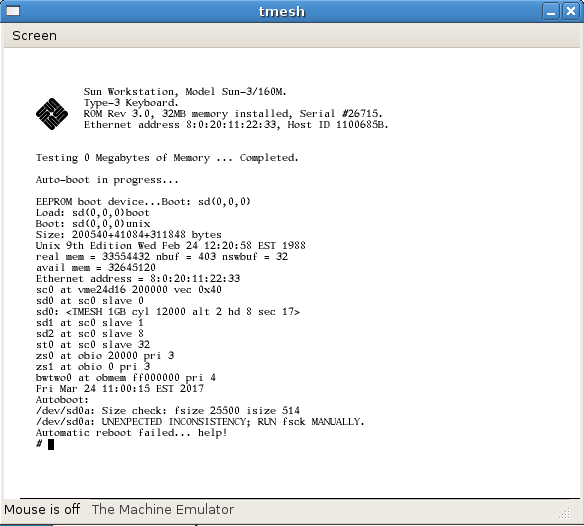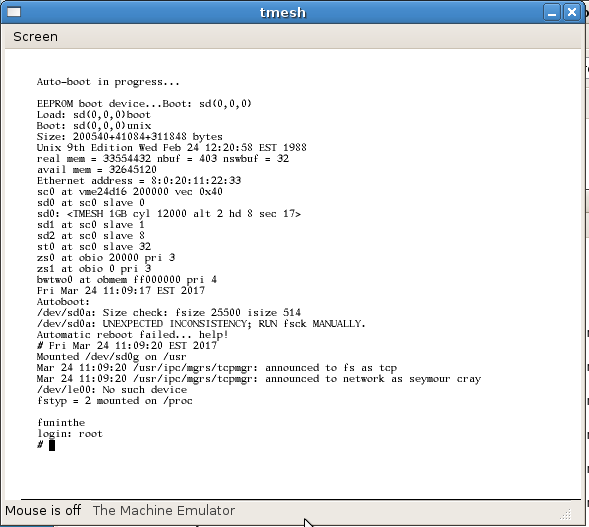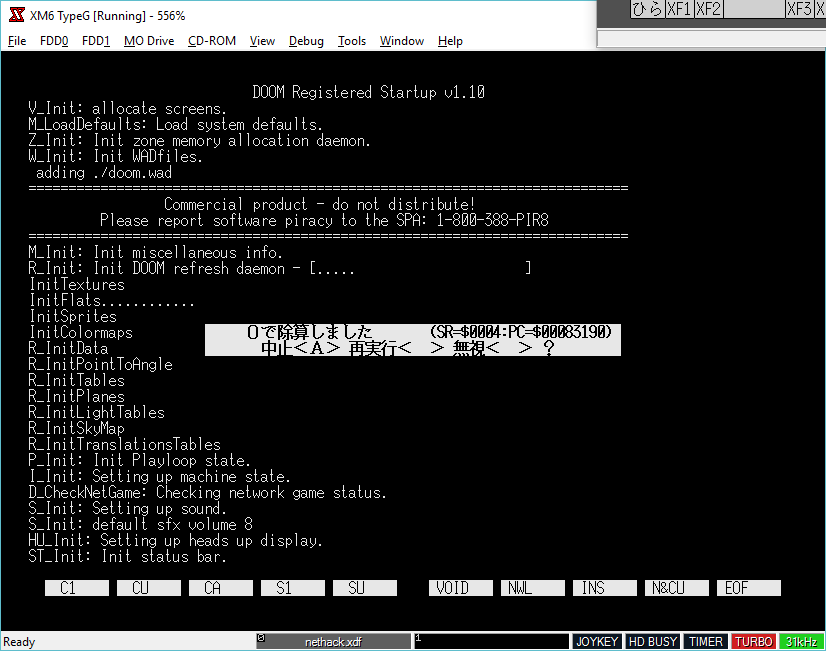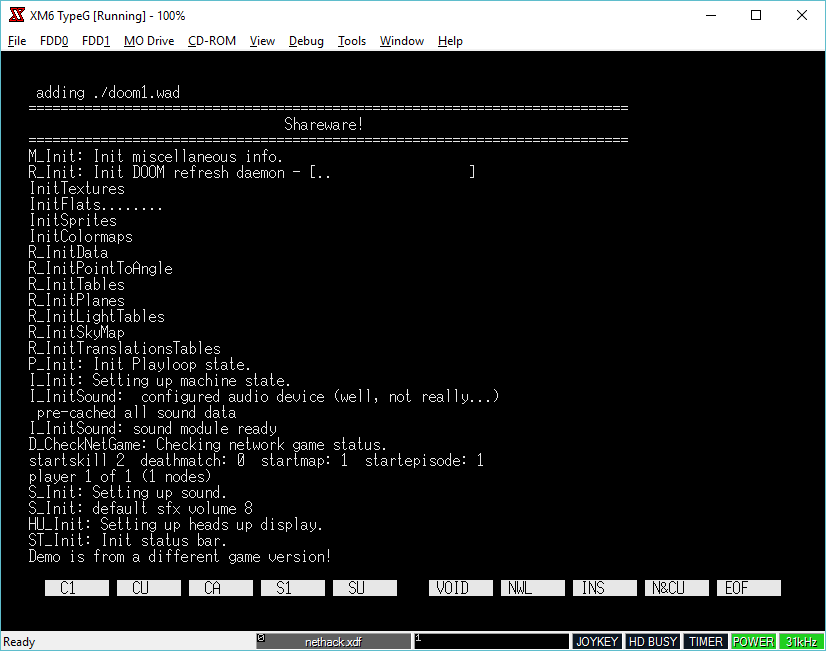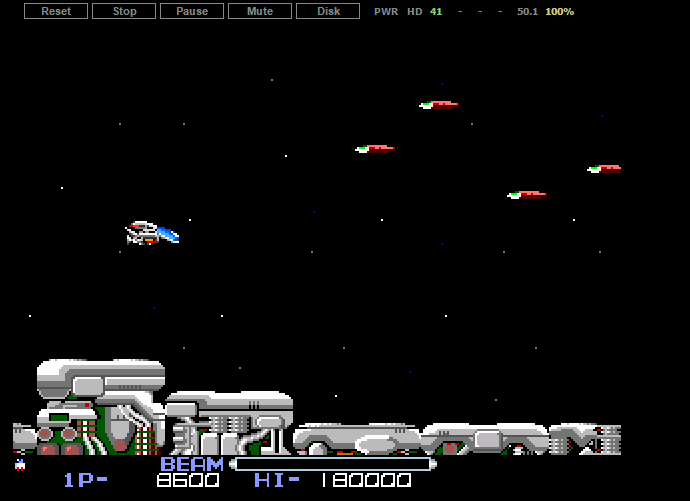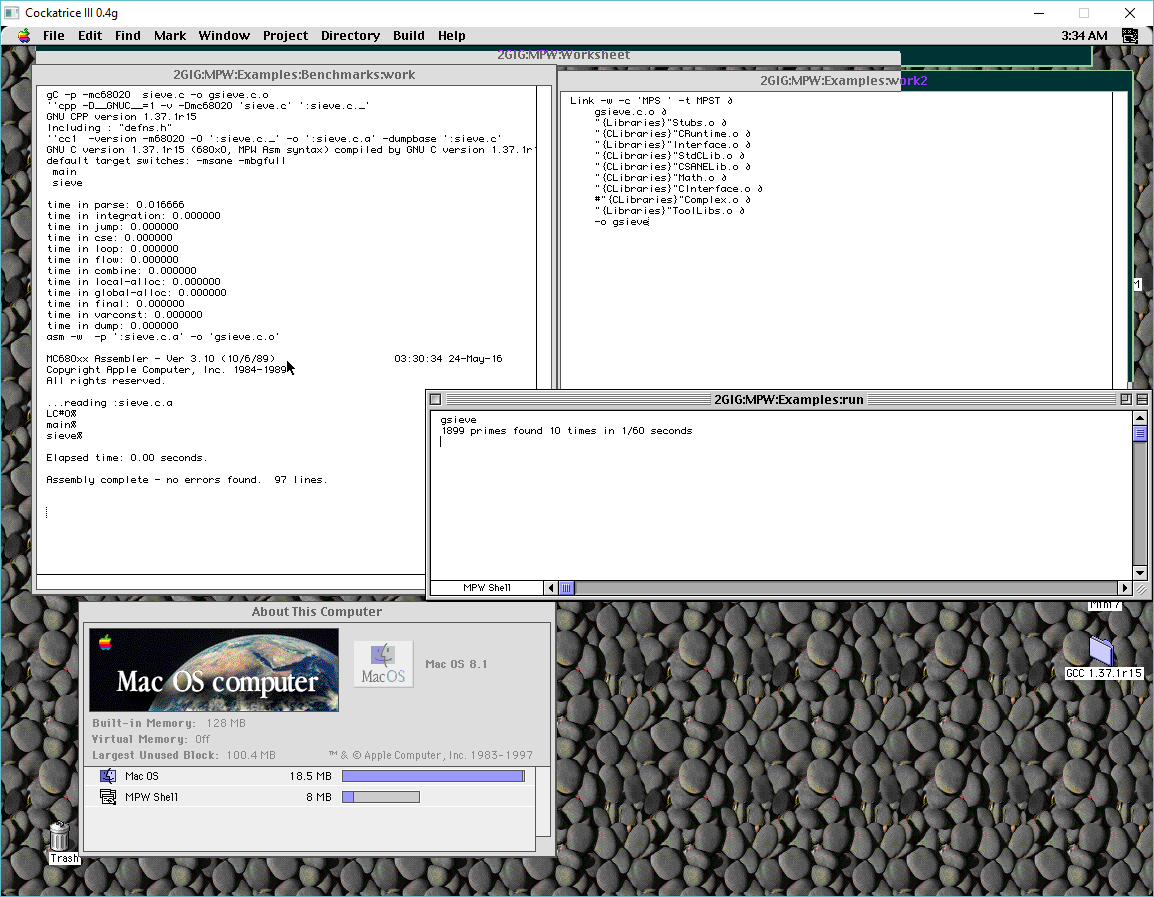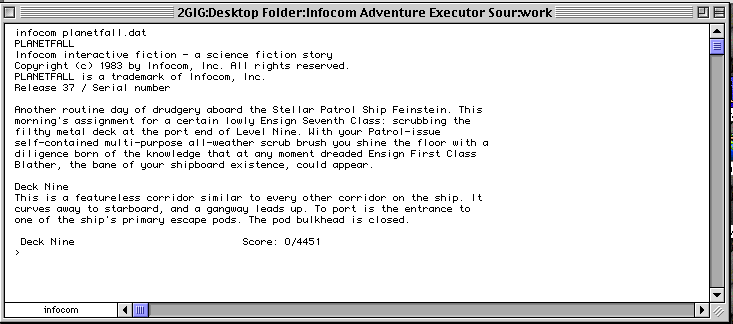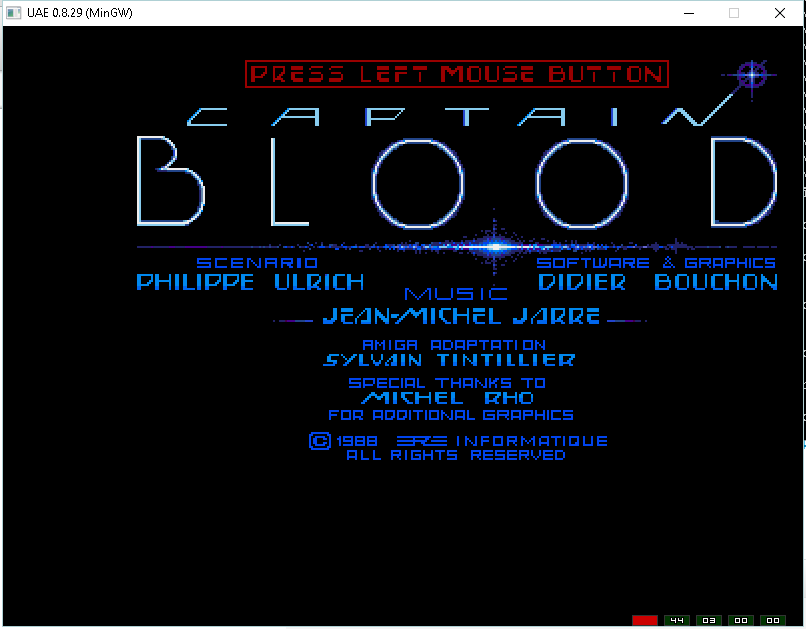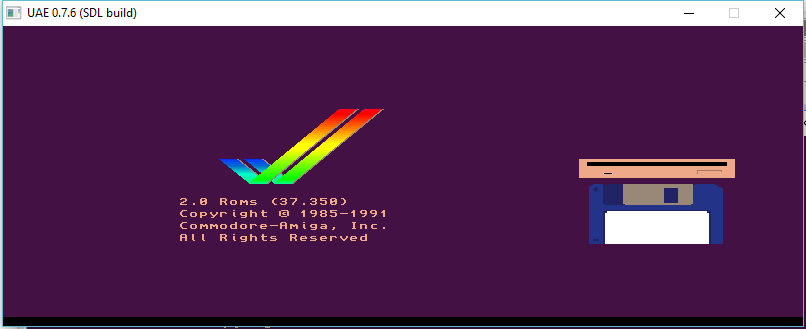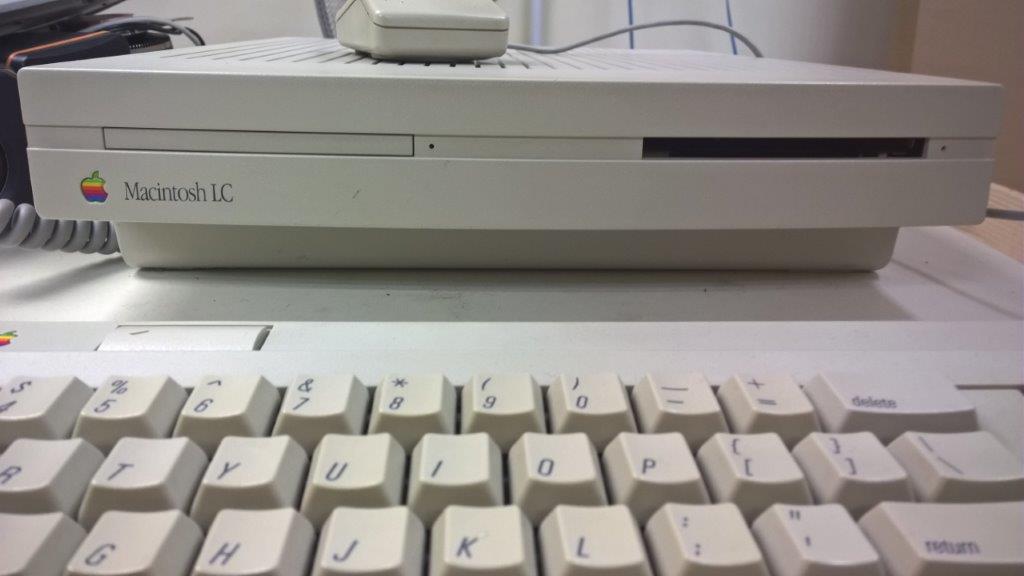
The LC isn’t a strong Macintosh. It is after all, a low cost model. And what I’m doing isn’t even slightly fair to it.
Since it has a mere 68020 running at a blazing 16Mhz with no 68881 nor any MMU running something like A/UX is simply out of the question. However MMU less Mac’s can run MachTen.
Although I did make a backup of the disk to find out that this thing had been in Harvard of all places, apparently once belonging to Mark Saroyan.
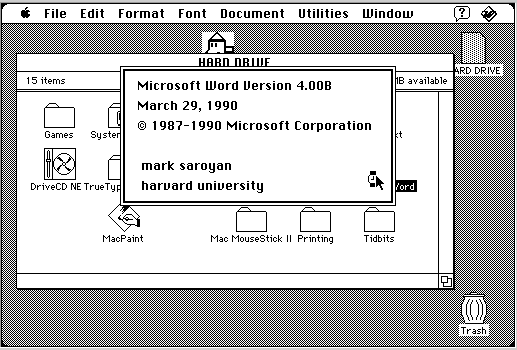
Although there was nothing even slightly academic or useful on the disk. I wonder if the software was even pirated as the last owner sure enjoyed all the various SIM games (city/earth/life/ant) it seems more than anything else.
I formatted the massive 50MB SCSI disk, put on a fresh copy of MacOS 7.0.1 along with the network driver and MachTen 2.2.
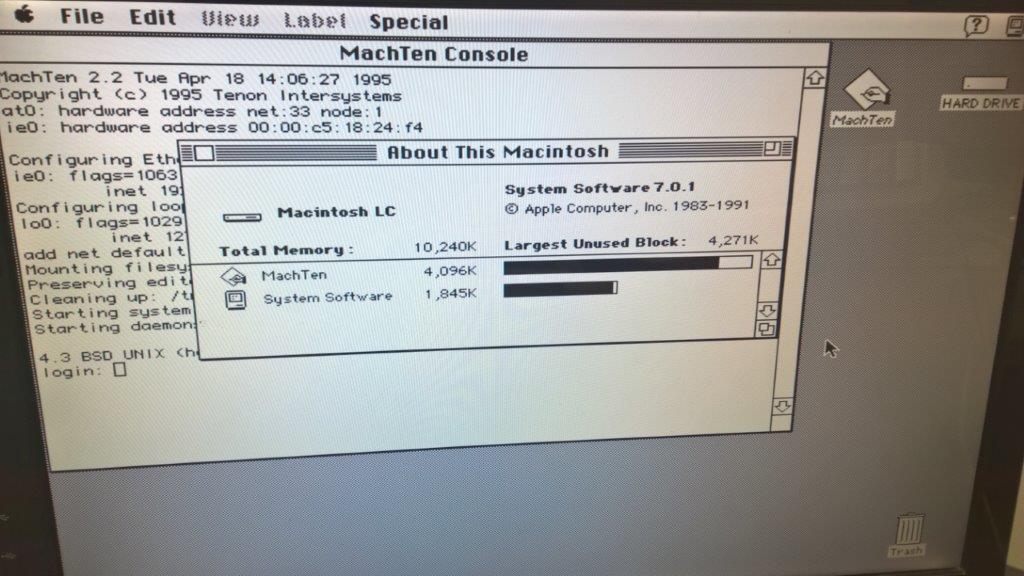
And as far as LC’s go, this one isn’t too bad, it’s loaded up with the maximum 10MB of RAM, although it seems the VRAM is pretty sparse as it’ll only go to 16 colours. But since we are playing UNIX here, I didn’t see any need for that, and set it to mono.
I thought it’d be fun to install a gopherd server onto this machine, and that is where the fun started.
Granted it’s been a long time since I used a machine with no real L2 cache, let alone running at a whopping 16Mhz, and using a compiler like GCC is just incredibly slow.
So I thought I could just ‘cheat’ the system by taking the source code to GCC-1.42 and tweaking the SUN3-Mach configuration into a SUN2-Mach configuration but keeping it targeting a BSD like OS, along with setting it to compile to a 68020 without a 68881. Oddly enough getting a cross compiler wasn’t so difficult, but the assembler on the LC, a modified GAS wouldn’t assembler the files. So I went ahead and built a68 from GAS 1.38 and now I can cross assemble from Windows. However I couldn’t get the linker ld from binutils-1.9 working. I guess it was an endian issue somewhere, but my attempt at byte swapping files it was reading just led to further confusion. And I figured linking on the target host wouldn’t be the end of the world, as compiling sure feels like it is.
I can’t see like anyone would care, but here it is:
MachTen-crossgcc-1.42-nolinker.7z
So fighting the source and in a matter of a 30 minutes of on/off work I had it compiled. All I needed to do then was FTP the objects to the machine, link and run. Surprisingly this proved to be pretty simple.
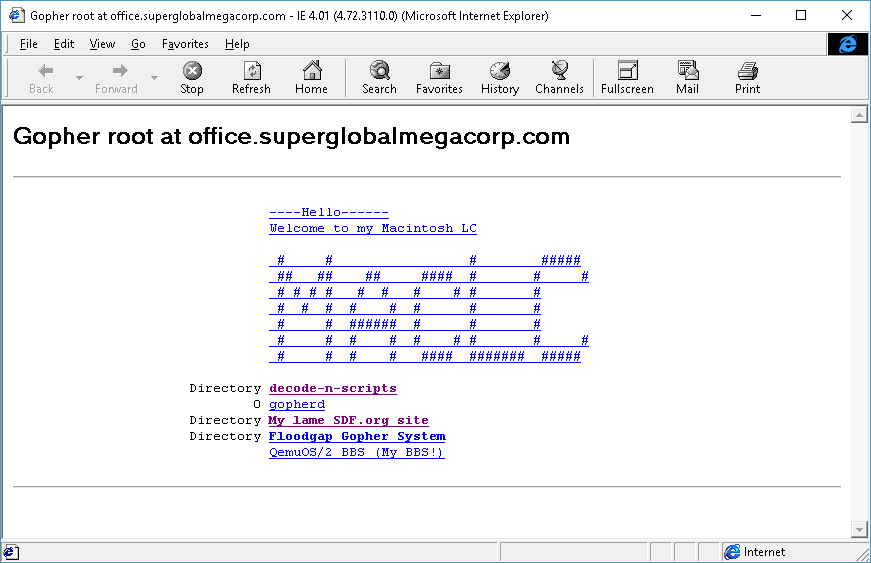
I managed to get a few pages out of it, and suddenly my telnet sessions dropped. Looking over at the console and MacOS was busy being MacOS.
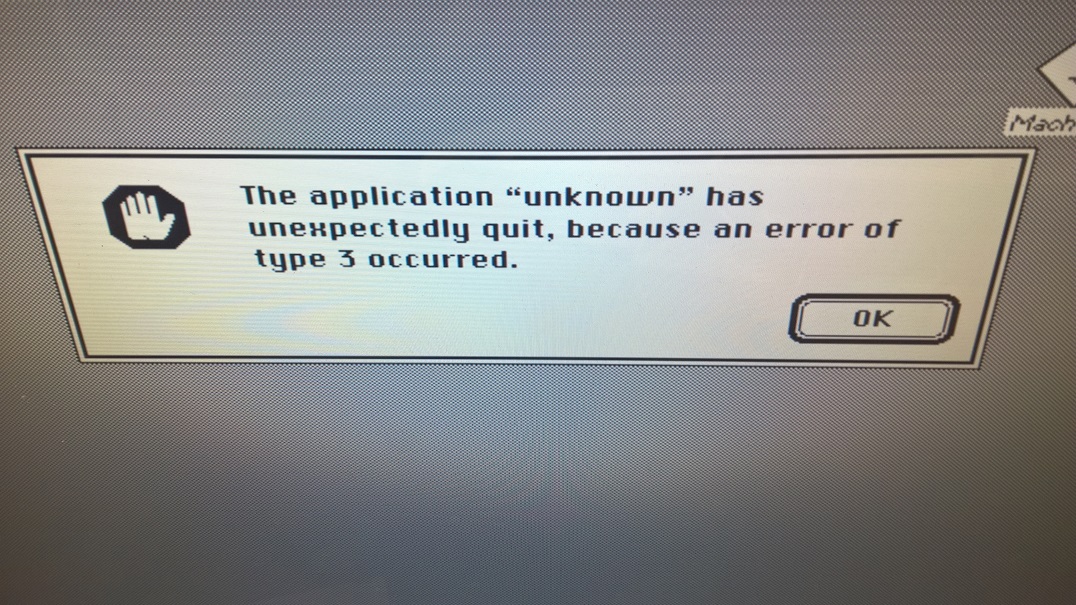
And that was that.
I tried another program to cross compile and upload phoon!
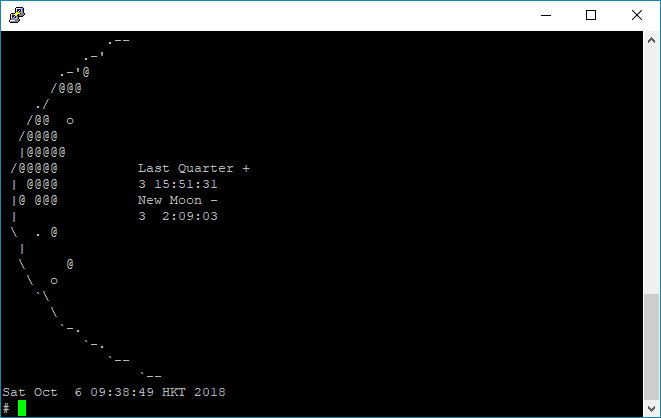
It took a while to set the clock to the right year, as my minimal System 7 install doesn’t have the time control panel, and advancing 1 year at a time from 1999 takes time, by advancing the date to New Years Eve every minute 19 times to get us to 2018 with the old date syntax:
date 12312359
Lessons learned?
Obviously if I want to do something like this, I’m going to need a better Macintosh. Or just not do things like this….
I’m kind of on the fence as to whither 68k Unix is really all that useful in the age of Ghz x86.

